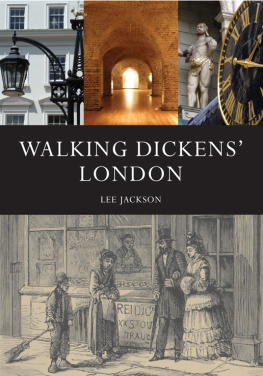
JERRY WHITE
London in the
Nineteenth
Century
A Human Awful Wonder of God
This ebook is copyright material and must not be copied, reproduced, transferred, distributed, leased, licensed or publicly performed or used in any way except as specifically permitted in writing by the publishers, as allowed under the terms and conditions under which it was purchased or as strictly permitted by applicable copyright law. Any unauthorised distribution or use of this text may be a direct infringement of the authors and publishers rights and those responsible may be liable in law accordingly.
Version 1.0
Epub ISBN 9781446477113
www.randomhouse.co.uk
Published by Vintage 2008
2 4 6 8 10 9 7 5 3 1
Copyright Jerry White 2007
Jerry White has asserted his right under the Copyright, Designs and Patents Act 1988 to be identified as the author of this work
This book is sold subject to the condition that it shall not, by way of trade or otherwise, be lent, resold, hired out, or otherwise circulated without the publishers prior consent in any form of binding or cover other than that in which it is published and without a similar condition, including this condition, being imposed on the subsequent purchaser.
First published in Great Britain in 2007 by Jonathan Cape
Random House, 20 Vauxhall Bridge Road,
London SW1V 2SA
www.vintage-books.co.uk
Addresses for companies within The Random House Group Limited can be found at: www.randomhouse.co.uk/offices.htm
The Random House Group Limited Reg. No. 954009
A CIP catalogue record for this book is available from the British Library
ISBN 9780224062725
CONTENTS
A City in Motion
XI. Flower and Dean Street: Crime and Savagery
For Sally Alexander
About the Author
Jerry White has been writing about London for thirty years. His London in the Twentieth Century: A City and Its People won the Wolfson History Prize for 2001. His oral histories, Rothschild Buildings: Life in an East End Tenement Block 18871920 (which won the Jewish Chronicle non-fiction book prize for 1980) and Campbell Bunk: the Worst Street in North London Between the Wars, were reprinted by Pimlico in 2003. He is Visiting Professor in London History at Birkbeck and in 2005 was awarded the honorary degree of Doctor of Literature by the University of London.
ALSO BY JERRY WHITE
London in the Twentieth Century: A City and Its People
Rothschild Buildings: Life in an East End Tenement Block 18871920
Campbell Bunk: the Worst Street in North London Between the Wars
ILLUSTRATIONS
(Old and New London).
(Antient Topography).
(City of Birmingham Public Libraries).
(London Metropolitan Archives).
(Mansell Collection).
(London Transport Museum).
(Country Life).
(Batsford).
(Batsford).
(Architectural Press).
(Saturn Press).
(Saturn Press).
(Dover Publications).
(Vagabondiana).
(Batsford).
(Batsford).
(Batsford).
(Paul Martin/Victoria & Albert Museum).
(Dover Publications).
(Paul Martin/Victoria & Albert Museum).
(Saturn Press).
(Microcosm).
(Microcosm).
(Paul Martin/Victoria & Albert Museum).
(Paul Martin/Victoria & Albert Museum).
(Pilot Papers).
(Microcosm).
(Crown copyright).
(Antient Topography).
(Paul Martin/Victoria & Albert Museum).
(Paul Martin/Victoria & Albert Museum).
(Sixty Years History of an East End Parish, 1901).
(Hoxton Mission).
(London Metropolitan Archive).
(Saturn Press).
LIST OF MAPS
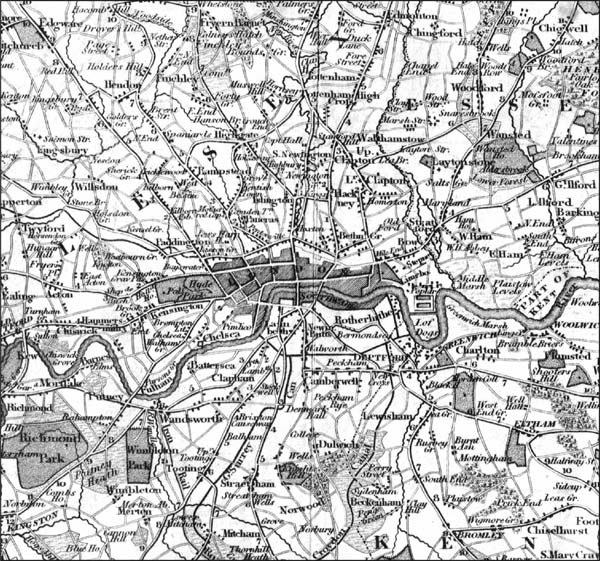
London in 1815
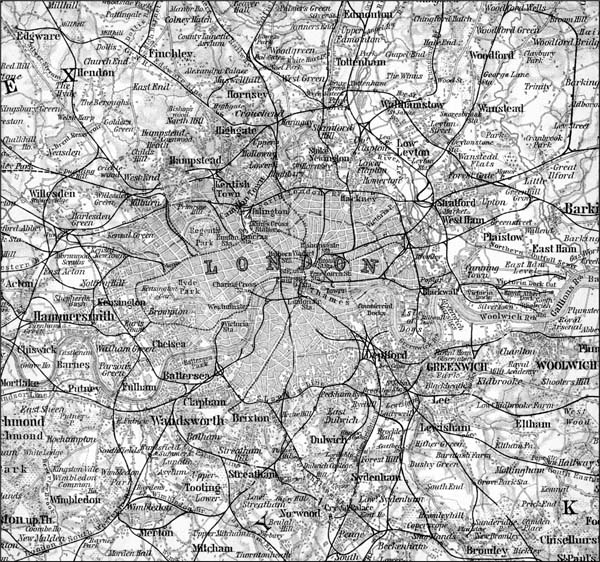
London in 1905
A NOTE ON MONEY
There is an official index on money values that relates todays prices to those in the nineteenth century. But in my view it understates the difference in buying power between then and now. I believe readers will not go far wrong if they think of a nineteenth-century pound as equivalent to 100 now. That holds broadly true for the century as a whole.
PRELUDE: TAMING THE LORD
OF MISRULE
E ARLY in the morning of Friday 6 April 1810 the House of Commons resolved to confine Sir Francis Burdett, one of its number, in the Tower of London. Hed published a scandalous libel on Parliaments arbitrary imprisonment of a radical for criticising the exclusion of strangers and press from a secret debate. There had been some shamefaced war business going on. Burdett was one of the richest men in London. Since 1802 he had been the leader of constitutional agitation for parliamentary reform. Member for Westminster, he could claim near-universal popularity among his middle-class voters and those without a vote, whom their enemies called the mob. That same morning he barricaded himself inside his house at 78 Piccadilly and announced he would repel force by force.
Huge numbers gathered in and around Piccadilly over the next four days. It was said at the time that the crowds were greater even than during the terrible Gordon Riots of thirty years before. All passers-by were made to shout, Burdett for ever! and were pelted with stones and mud in default. The London homes of Burdetts main opponents were attacked at night and every accessible window stoned and broken. Police couldnt control the streets or protect property. So the military were called out. This was wartime and many soldiers in London were battle-hardened.
The display of force was extraordinary. Artillery was set up at the Tower and its moat flooded. Sixteen fieldpieces were stationed in St Jamess Park, a howitzer and a sixteen-pounder in Soho Square with matches lighted, there were cannons in Berkeley Square and all the troops within a hundred miles of London, both cavalry and infantry, were ordered to march to the Metropolis. The Life Guards moved constantly to clear the streets, riding on the footway and driving the people before them pressing on them in such a way as to cause great terror, frequently doing some of them injury and compelling them to injure one another, striking those who could not get out of the way fast enough with the flat of their swords. Cavalry charges were provoked by the crowd and met with crude barricades and brickbats. But some in the peoples ranks were also armed. A guardsman was shot in the face, the troops responding with musket volleys. It is not known how many were killed or injured in the struggles round 78 Piccadilly. London looked like a city plunged into civil war.
Next page


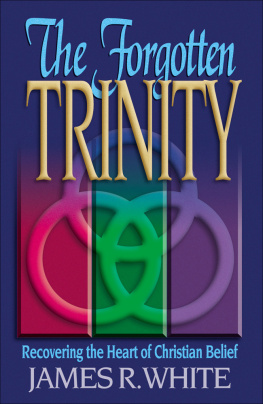
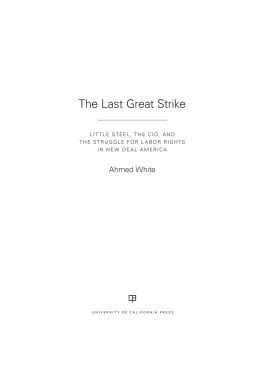
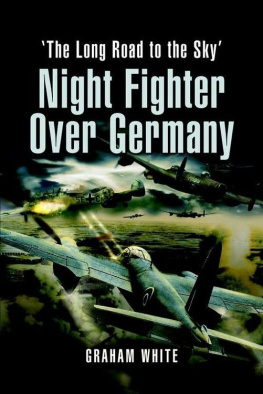
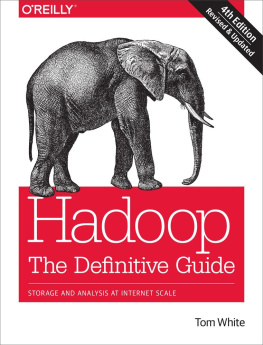


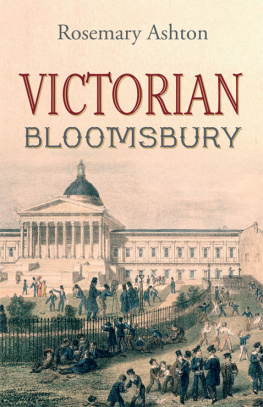
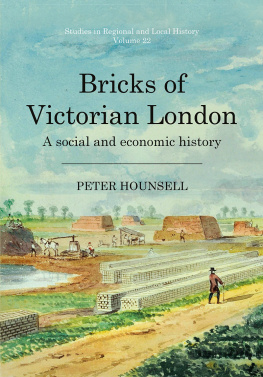
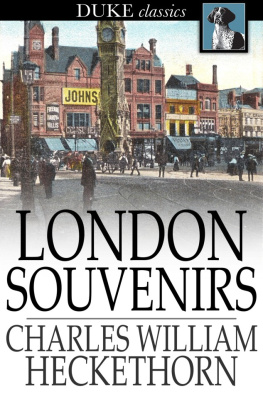
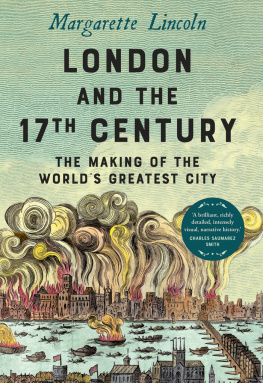
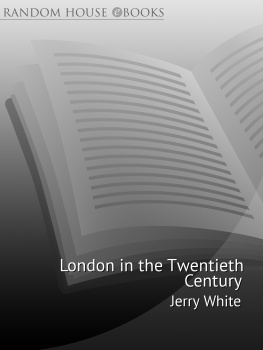
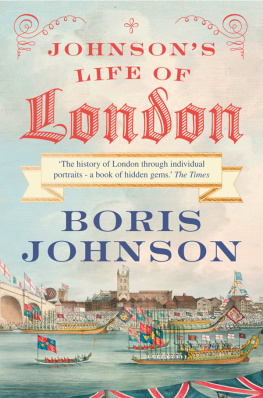
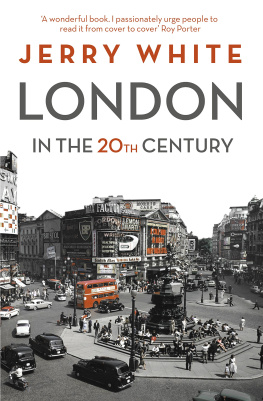
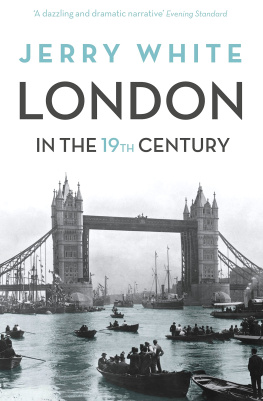
![Harvie Christopher - Nineteenth-century Britain: a very short introduction ; [in memorian Colin Matthew]](/uploads/posts/book/137651/thumbs/harvie-christopher-nineteenth-century-britain-a.jpg)

